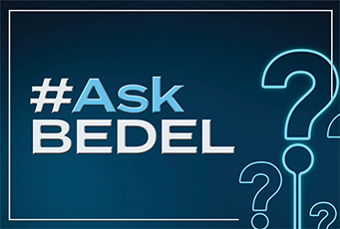The bond market is down over -9% since the beginning of the year. The significant losses are almost across the board. High yield, investment grade, long-term, and intermediate bonds have taken large hits. Only short-term and adjustable-rate bonds have largely escaped the carnage. So what is happening to the bond market and what should you do?
Why have Bonds Dropped?
With inflation at its highest point in over 40 years, the Federal Reserve has increased its interest rate and forecasted further rate increases. In addition, they have discontinued their open market bond purchases, which kept bond prices high and rates low. These actions cause bond market rates to go up, which cools the economy and hopefully softens inflation. However, these actions have pushed asset prices to move lower.
What Do Yields Look Like Now?
The overall bond market is now yielding almost 3%. High-yield bonds yield about 6% and tax-free municipal bonds are approximately 2.5%. If you are in the 24% income tax bracket, the 2.5% tax-free yield equates to a taxable yield of 3.3%.
The best deal right now is the Federal Reserve's I Savings Bond, which has a current annualized yield of 9.62% for the next six months. This bond comes with purchasing limitations ($10,000 per person per year) and holding requirements (must hold for at least one year and penalty for selling within five years).An I-Bond’s value is protected from declines during periods of rising interest rates in ways that traditional bonds are not. However, they may not be appropriate for everyone because of the restrictions.If interested, I-Bonds can only be purchased online through a Treasury Direct account (TreasuryDirect.gov).
Wait Until the Fed is Done?
Last week, the Federal Reserve announced that they raised the Fed discount rate by 50 basis points, which is 0.50%. This was the largest single increase in more than twenty years. Further, they anticipate several more interest rate increases throughout this year. By the end of 2022, their rate, between 0.75% and 1% today, will potentially increase to between 2.75% and 3%.
With interest rates heading higher, should you wait until they stop rising before you look for buying opportunities? No. The bond market has already moved considerably lower, anticipating these future rate increases. The losses sustained are pricing in rates rising to between 2.75% and 3%.
This does not mean that the bond market cannot continue to lose more money. But the recent losses likely already represent most of the future Fed rate increases. So, if you were to buy bonds today, for you to lose money due to rate changes, interest rates would need to move more than expected.
Good Bonds Can Recoup Losses
While losing money in bonds is bad news, the good news is that bonds will likely recoup those losses as they get closer to maturity. For example, if you hold a bond with a 5-year maturity, as time moves closer to the date of maturity, a bond in good standing will see its price move back closer to its maturity value. Upon maturity, good bonds will mature and pay out the full value of the principal. Then you can reinvest the proceeds in a new bond at a higher rate. However, there is always the chance that if a bond defaults, you do not receive the full investment back.
Bonds and Bond Funds
When you own individual bonds, you only get higher interest payments when you buy a new bond. With a bond fund that owns many bonds, maturing bonds happen more often, and consequently, the fund's yields will rise as new bonds are being purchased. This allows you to incorporate bonds with higher yields into your portfolio more quickly.
What to Do Now?
If you have cash that is still earning next to nothing, the higher bond yields are attractive. But, of course, you will have to decide if you want to buy new bonds today with the risk of potentially losing some value, should rates keep rising. Still, buying a bond that yields more than 3%, compared with cash that is earning 0%, sounds attractive.
If you own bonds that have taken a hit, consider tax-loss harvesting. Selling a bond or bond fund today and immediately reinvesting the proceeds back into a similar bond or bond fund will recognize a loss that can help with your 2022 taxes.
Please be aware of wash-sale rules. The rule states that you cannot purchase the same investment within 30 days of selling it at a loss, or you will lose the sale's tax benefit.
Summary
Losing money in bonds can be frustrating. However, you can make the best of this situation by buying higher-yielding investments and harvesting losses. As always, please do your research and consult your advisors before making any changes.
Schedule a Consultation
We have helped our clients answer these questions and more. If you want a clear understanding of your financial future, and need help making changes to reach your goals, schedule a consultation and we can get started.
Please remember that past performance may not be indicative of future results. Prior to implementing any investment strategy referenced in this article, either directly or indirectly, please discuss with your investment advisor to determine its applicability. Any corresponding discussion with a Bedel Financial Consulting, Inc. associate pertaining to this article does not serve as personalized investment advice and should not be considered as such.
Recommended Articles
Riding the (Weight Loss) Wave: Balancing FOMO with Prudent Risk Management
Eli Lilly's future holds immense potential, but a...





